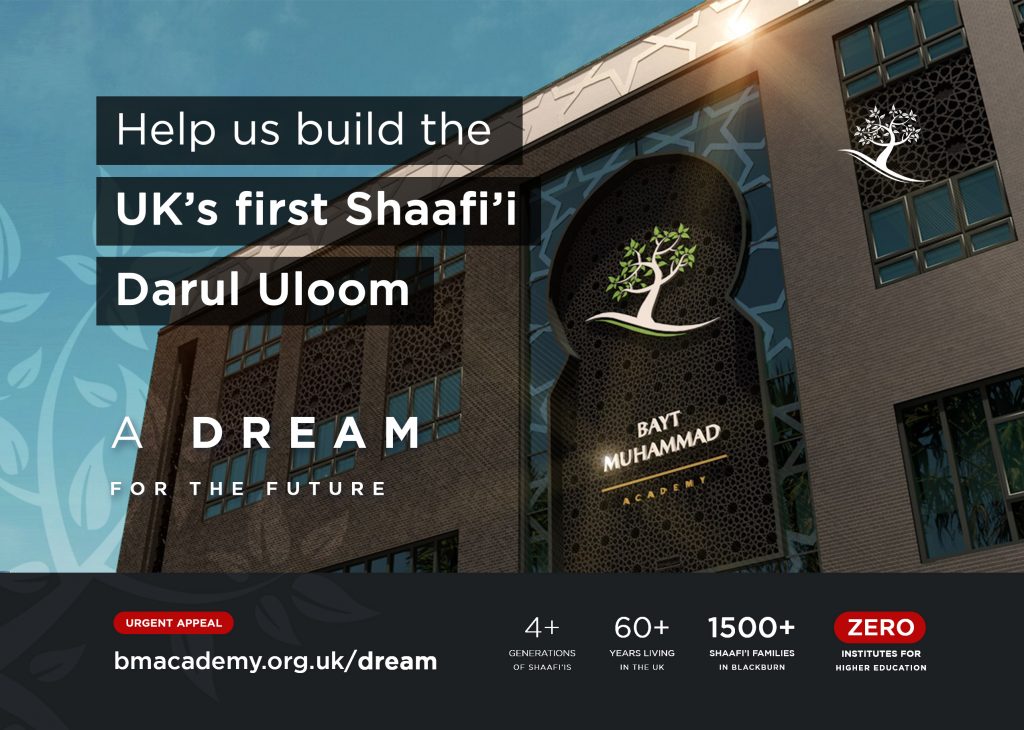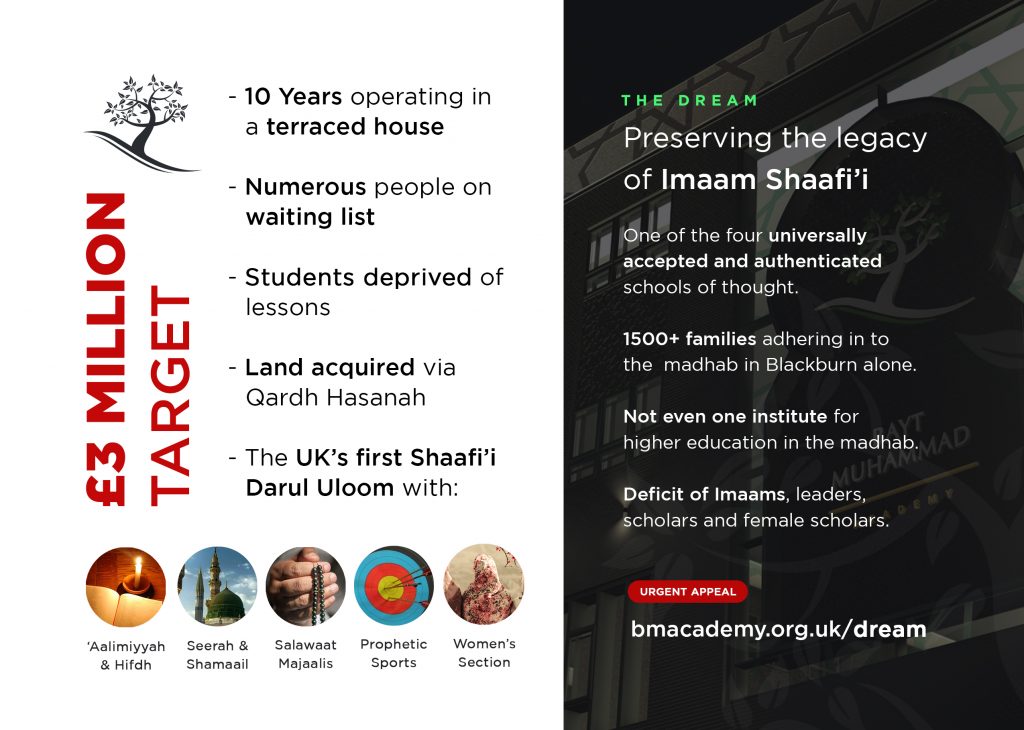بِسْمِ اللّٰهِ الرَّحْمٰنِ الرَّحِيْم
الحمد لله رب العالمين الذي منّ علی المؤمنين اذ بعث فيهم رسولا من انفسهم يتلوا عليهم ايته و يزكيهم و يعلمهم الكتاب و الحكمة و ان كانوا من قبلُ لفي ضلال مّبين
In the aftermath of the Harb Al-Fujjar (The Sacrilegious Wars), Makkah was left in an even greater paradox. On the one hand, a vast majority of lives were negatively impacted and left amidst the post-war ruins. Whilst on the other hand, the rich and elite continued to enjoy their lives of luxury. Just as they ravished their extravagant meals without the slightest consideration for the blood, sweat and toil of the slaves who prepared them, they were also completely oblivious of the consequences and suffering that resulted from their feuds and battles.
Amidst, the blood-shed, broken homes, suspended livelihoods, elevated poverty levels, numerous orphans and countless widows, Makkah was desperately in need of a welfare system to restore families and re-build lives. These were the circumstances amidst which the Prophet ﷺ was entering into his youth, during the latter-half of his teenage years.
A New Generation Forms
Born of noble and aristocratic blood, the Prophet ﷺ was classed as part of the new generation of elites forming. Lavish silk-brocades, designer-apparel and imported accessories adorned the privileged sons of Makkah’s nobles and chieftains. From a host of servants, extravagant meals, and luxury-conveyances, they lived in the spoils of their father’s riches, inheriting their pride, their arrogance and their elitist mindset. They would spend their days enjoying frivolous sports and material-pleasures, riding through Makkah on expensive stallions without a care or concern. Their sole concern – besides indulging themselves into the ways of their fathers – was to grow into the family business of self-centred leadership, dishonest trade and relentless exploitation. They had no concern for the needs of those devoid of their riches and status, and their charitable endeavours were covered by their father’s “public displays” of generosity.
However, there still remained – amongst this new generation – a group of youths that were silently distinct from the spectacle of the rest. Those who – at varying grades – did not completely walk in the shade of their fathers, possessing an air of humility and sincerity as the traits of Kufr and Jahiliyyah (Ignorance) had not cemented within their hearts.
Beyond them all, Our Beloved Master Muhammad ﷺ was uniquely different from each and every one of them. Allah سبحانه و تعالی ensured His beloved ﷺ was completely free from all of the negative traits that adorned the youth of his generation. His heart was absolutely pure, filled with humility and sincerity. He lived in simplicity with his uncle and aunt, grateful and appreciative of whatever food and clothing was available. He worked hard and brought a great sense of Barakah to their household. His intellect reached a level of maturity and sensibility that exceeded all in his age-range, a quality that he ﷺ displayed since infancy as Sayyidah Haleemah رضی الله عنها narrates. (Al-Khasaais Al-Kubra, Mawaahib Al-Ladunniyyah)
Despite also being from the aristocratic families of Makkah, the Prophet ﷺ would never look down upon the poor and destitute. In a time where people were discriminated due to race, tribe, social-class and wealth, he ﷺ would treat all with mercy, equity and justice. He ﷺ would never take the right of another, but rather strive to fulfil the rights and needs of others.
Hilf Al-Fudhool: “The Pact of the Virtuous”
A brilliant example of his ﷺ unique excellence over the entirety of his generation is seen during the immediate aftermath of the sacrilegious wars. Whilst the Prophet ﷺ had shown no support to the injustice and motives of the conflict – with some narrations reporting his total exclusion from engaging at any level – he ﷺ was at the forefront when it came to restoring the lives destroyed by it.
Zubair ibn Abdul-Muttalib – the uncle of the Prophet ﷺ – led the initiation of a special conference after the post-war situation of Makkah, to discuss the need for a welfare system that could protect the honour and rights of the oppressed.
The conference was held at the vast quarters of Abdullah ibn Jad’aan, who was an extremely wealthy and generous individual. A coalition was formed between the various tribal leaders and representatives to ensure that justice would always be served in the right of the oppressed, whether they be from Makkah or not. This pact was then known as “Hilf Al-Fudhool” (The Pact of the Virtuous).
Whilst all of these senior leaders, wealthy statesmen and wise elders came together, a young teenage boy stood amidst them to witness the formation of this virtuous endeavour.
The Prophet ﷺ stood – as a teenager – amidst great, wealthy elders, without possessing any form of wealth or position, only a world full of mercy and ambition brimming from his young heart. He ﷺ was determined to empower the weak and impoverished, to protect the rights of the innocent, and to uphold justice in the face of the exploitation Makkah’s elite practiced all too freely.
He ﷺ said in regards to this:
لَقَدْ شَهِدْت فِي دَارِ عَبْدِ اللهِ بْنِ جُدْعَانَ حِلْفًا، مَا أُحِبّ أَنّ لِي بِهِ حُمْرَ النّعَمِ وَلَوْ أُدْعَى بِهِ فِي الْإِسْلَامِ لَأَجَبْت”
“I witnessed a pact in the quarters of Abdullah ibn Jad’aan, I would not (even) love (to have) Red Camels in exchange for (my witnessing) it, and were I to be invited to it in Islam (i.e now after Nuboowwah), I would certainly accept!” (Ibn Ishaaq)
Here the reference to “Red Camels” is the seventh-century equivalent of what we may now refer to as the sleekest new “Red-Speedster”. Thus, the Prophet ﷺ is powerfully stating that he would even reject an entire group of the most expensive commodities, just so he ﷺ could take part in aiding and assisting others.
Subhaanallah! Such was the heart of the Prophet ﷺ. In a world full of greed, a hoard of Red Camels meant nothing to the one who was indeed sent as a mercy for the worlds. From this we can see that even from an early age, the Prophet ﷺ was deeply concerned about upholding justice, fulfilling the rights of others, and assisting those in need…
May Allah سبحانه و تعالی bless the pure heart of Our Prophet ﷺ, and bestow us with hearts that live to uphold justice, fulfil the rights we owe, and assist those in need… Ameen Yaa Rabbal ‘Aalameen.
Join us tomorrow, as we continue with our next article in the blessed Seerah: “The Most Beautiful Man ﷺ”

